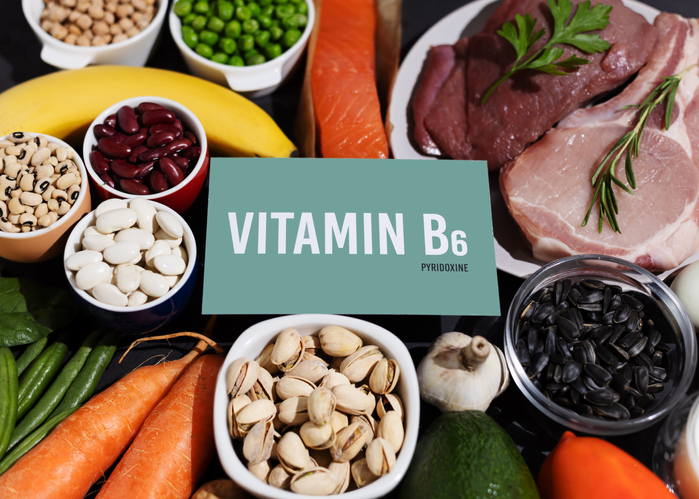Take a Chill Pill. Or Maybe Some Vitamin B6

By Joy Stephenson-Laws, JD, Founder
Sensory overload is real these days. If you constantly feel overstimulated, you are definitely not alone.
“The tendency to become overstimulated can’t be completely avoided, because it’s impossible to steer clear of all potentially challenging situations—be it a visit to a busy supermarket, your brother’s birthday party, giving a presentation at work, organizing or booking your next vacation, or an upcoming parents’ evening at your kids’ school,” according to a report from Psychology Today.
(Not to mention all of the devices! Phones, computers, televisions, tablets and smart watches).
“All these situations can quickly feel overstimulating because they are accompanied by the processing of numerous internal and external stimuli. It is thus not possible to completely avoid overstimulation, not least because it would likely cause you to lead a very controlled and boring life.”

According to the National Alliance on Mental Illness (NAMI), anxiety disorders are the most common mental health issue in the United States. In addition to this, the Cleveland Clinic reports that attention-deficit/hyperactivity disorder (ADHD) is one of the most common childhood neurodevelopmental disorders. This is often a condition that lasts into adulthood, and symptoms may include inattention, hyperactivity and impulsivity. As you can probably imagine, this condition also has great potential to be very anxiety-inducing.
“Virtually anyone can have a sensory processing issue; however, more often than not, sensory processing challenges affect the neurodiverse. More specifically, they're commonly seen in neurodevelopmental disorders such as ADHD and autism,” reports Psychology Today.
Adderall and Ritalin, which are stimulants, are two drugs commonly prescribed for treating ADHD and are known to help with sensory processing. These drugs may help with focus and attention, reducing hyperactivity and impulsivity and decreasing anxiety. Some might call Adderall and Ritalin ‘chill pills,’ but could it be possible that a high dose of a specific micronutrient could provide an effective form of treatment as well?
Let’s take a look at a recent five year-long study that involved 478 young adults. The participants were randomly prescribed either vitamin B6, vitamin B12 or placebo tablets.
“Vitamins B6 and B12 are involved in metabolic processes that decrease neural excitation and increase inhibition,” according to this report that discusses the study.
The vitamin B6 tablets were 100 mg each, and the vitamin B12 tablets were 1000 micrograms each.
Visual surround suppression.“We evaluated whether the balance between neural excitation and inhibition, as assessed by a range of behavioural outcome measures, could be altered through supplementation with either Vitamin B6 or B12 relative to placebo,” according to the study report.
The results suggested that vitamin B6 reduced anxiety as well as strengthened visual surround suppression (which is essentially a fancy, scientific way of saying that it increased focus and helped people not get overwhelmed by sensory overload). Furthermore, B6 “induced a trend towards reduced depression.”
There are at least eight B vitamins, and all are critical to our overall physical and mental health. The one you are most likely familiar with is the widely talked about vitamin B12. Vitamin B6, also called pyridoxine, is involved in more than 100 enzyme reactions in the body. Milk, ricotta cheese, salmon, tuna (yellowfin and albacore), eggs, chicken, liver, beef, carrots, spinach, sweet potatoes, green peas, bananas, chickpeas, breakfast cereals and avocado are dietary sources of B6. This nutrient:
- Helps with immune function by helping the body make antibodies.
- Helps maintain normal nerve function
- Makes hemoglobin (a protein in the red blood cells that transports oxygen to the body’s organs and tissues). Having a vitamin B6 deficiency may cause a particular type of anemia.
- Breaks down proteins. The more protein you consume, the more vitamin B6 you need to consume.
- Maintains blood sugar balance.
As far as the brain is concerned, when it comes to vitamin B6, “Vitamin B6 may indirectly help with brain function by lowering levels of homocysteine, as high levels of this protein in the body have been linked with a higher incidence of dementia, Alzheimer’s disease, and cognitive decline. However, there is a lack of controlled trials showing that supplementation can slow cognitive decline,” according to Harvard T.H. Chan School of Public Health.
So we cannot definitively say that vitamin B6 helps prevent cognitive decline or anxiety and ADHD, however, there is evidence that suggests that it may. And because we need adequate amounts of this vitamin to be healthy, it couldn't hurt to see if vitamin B6 helps with any mental health issues or disorders. I, however, want to be very clear in saying that you should never take high doses of supplements without competent medical advice. You really should not supplement at all unless you have guidance from a competent healthcare professional.
(Read here to learn about vitamin toxicity and how to supplement safely).
It is also a good idea to keep taking prescribed medications unless told otherwise by a competent doctor. I highly recommend that most people take routine nutrient tests in order to identify any nutrient deficiencies and imbalances that they may have. If a deficiency or imbalance is found, a competent healthcare professional can suggest necessary dietary changes and recommend quality supplements if necessary.
Anxiety, stress and sensory overload are all things that we cannot completely avoid in daily life, but we can mitigate the effects by being proactive by eating healthily, exercising regularly, getting good quality sleep and reducing screen time (especially in the evenings). Connecting with nature is also key. Ocean therapy really does work wonders. I am also a big believer in pampering yourself to manage stress and anxiety. Red light therapy and a good facial are great ways to not only feel good but look good too.
Enjoy your healthy life!
Disclaimer: This article is not intended to provide medical advice. Please consult with your doctor or another competent healthcare practitioner to get specific medical advice for your situation.
The pH professional health care team includes recognized experts from a variety of health care and related disciplines, including physicians, attorneys, nutritionists, nurses, and certified fitness instructors. This team also includes the members of the pH Medical Advisory Board, which constantly monitors all pH programs, products, and services. To learn more about the pH Medical Advisory Board, click here.







